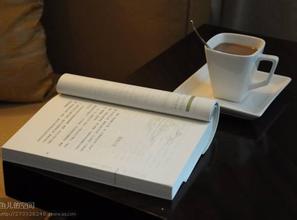Cuban Crystal Mountain Flavor description of Flavor Coffee beans introduction to the production area of Grinding scale varieties
Cubita adheres to the principle of perfect coffee, only makes individual coffee, the picking of coffee beans is done by hand, and all the particles of coffee beans are strictly selected according to the standard of sieve 17-19, plus washing coffee beans, to a large extent, remove defective beans and other impurities to ensure the quality of coffee. It has a high reputation in the coffee industry. Careful people will find that Cubita is indescribably unique with other coffee. Cubita is not like Italian coffee, which tastes bitter and knight-like; unlike the arrogance of Blue Mountain Coffee, it feels like an emperor. But Cubita is like an elegant princess, with a sense of natural tenderness, nobility, tenderness and elegance. Excellent balance, a good combination of bitter and sour taste, there will be a meticulous, smooth, fresh and elegant feeling when tasting, which is the unique characteristics of the best enjoyment of coffee: nobility, tenderness and elegance.
Cubita is produced in coffee from the pollution-free Crystal Mountain in the high altitude of Cuba, which is adjacent to the Blue Mountain Mountains of Jamaica and has similar climatic conditions, comparable to Jamaican Blue Mountain Coffee. Crystal Mountain is also known as the Blue Mountain of Cuba. As a result, there are many coffees under the banner of the Cuban Blue Mountains, but the purest Crystal Mountain Coffee Cubita is the top coffee allowed to use the Cuban "Crystal Mountain Coffee" and has become a coffee designated by the Cuban Embassy to drink it. At present, Crystal Mountain Coffee is synonymous with top Cuban coffee.
In Cuba, most of the coffee beans are picked by hand. Coffee beans are picked about every half a month during the ripening period. During or after picking, coffee beans are classified and those immature and bad beans are removed to ensure the quality of the coffee. Cubans usually deal with coffee beans in two ways-tanning and washing. Tanning is the simplest, cheapest and most traditional way to treat coffee, which is to let the coffee fruit dry in the sun but not ferment. The general drying time is about four weeks. The washing rule makes the aroma of the fruit more into the coffee beans, thus adding a coarse fruit aroma to the coffee.
Cuba is like a crocodile crouching in the Caribbean, her tail brushing right on the Tropic of Cancer. Cubans have always been known for their enthusiasm, but they are also very sincere and stubborn. The same is true of their coffee, which has always been carried out in accordance with Arab coffee washing standards, and they have always followed their unique traditional methods to control the roasting process very extremely. it is necessary not only to have a very delicious, full-bodied and slippery coffee flavor, but also to keep the coffee beans from being hot and dry due to overroasting.
Cubita adheres to the principle of perfect coffee, only makes individual coffee, the picking of coffee beans is done by hand, and all the particles of coffee beans are strictly selected according to the standard of sieve 17-19, plus washing coffee beans, to a large extent, remove defective beans and other impurities to ensure the quality of coffee. It has a high reputation in the coffee industry. Careful people will find that Cubita is indescribably unique with other coffee. Cubita is not like Italian coffee, which tastes bitter and knight-like; unlike the arrogance of Blue Mountain Coffee, it feels like an emperor. But Cubita is like an elegant princess, with a sense of natural tenderness, nobility, tenderness and elegance. Excellent balance, a good combination of bitter and sour taste, there will be a meticulous, smooth, refreshing and elegant feeling when tasting, which is the best enjoyment of coffee.

Important Notice :
前街咖啡 FrontStreet Coffee has moved to new addredd:
FrontStreet Coffee Address: 315,Donghua East Road,GuangZhou
Tel:020 38364473
- Prev

Introduction to the production areas of Peruvian coffee beans with excellent taste by grinding scale treatment
Peruvian coffee beans are best known for their coffee beans from Chimacha Mayou in the middle and Cusco in the south. In addition, some areas in northern Peru also produce characteristic organic coffee. Organic coffee is made of beans grown in the shade of trees. Although the yield of coffee beans is not high because of the method of planting in the shade, its quality can reach the level of gourmet coffee. This is due to
- Next

Introduction to the method of Grinding and Calibration for describing the Flavor of Salvadoran Coffee beans
In the early 1990s, guerrilla warfare greatly damaged the country's national economy, reducing coffee production from 3.5 million bags in the early 1970s to 2.5 million bags in 1990-1991. The eastern part of the country was most affected by guerrilla warfare, and many farmers and workers were forced to leave the manor. The shortage of funds has led to a sharp drop in coffee production, from 1200 kg per hectare in the past to today's yield per hectare
Related
- Detailed explanation of Jadeite planting Land in Panamanian Jadeite Manor introduction to the grading system of Jadeite competitive bidding, Red bid, Green bid and Rose Summer
- Story of Coffee planting in Brenka region of Costa Rica Stonehenge Manor anaerobic heavy honey treatment of flavor mouth
- What's on the barrel of Blue Mountain Coffee beans?
- Can American coffee also pull flowers? How to use hot American style to pull out a good-looking pattern?
- Can you make a cold extract with coffee beans? What is the right proportion for cold-extracted coffee formula?
- Indonesian PWN Gold Mandrine Coffee Origin Features Flavor How to Chong? Mandolin coffee is American.
- A brief introduction to the flavor characteristics of Brazilian yellow bourbon coffee beans
- What is the effect of different water quality on the flavor of cold-extracted coffee? What kind of water is best for brewing coffee?
- Why do you think of Rose Summer whenever you mention Panamanian coffee?
- Introduction to the characteristics of authentic blue mountain coffee bean producing areas? What is the CIB Coffee Authority in Jamaica?

